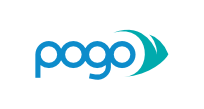Call for Training Cruise hosts
As part of the NF-POGO Capacity Building programme, the Nippon Foundation and POGO are offering grants to support training cruises. These can be used to take advantage of spare capacity on ships that may be in transit between ports, or that are not being used to their full capacity for research.
This call offers the opportunity to fill empty ships and spare berths, collect additional data and contribute to training the next generation and building capacity in developing countries.
This programme provides a unique training opportunity in the field of observational oceanography. The NF-POGO Shipboard Training Fellowship is a contribution that helps to narrow the current gap between the Global North and the Global South with regard to oceanography. As there is only one Ocean, the ocean science observing system must play a key role for sustainable development within a global capacity-building effort.”
Dr. Marcos Fontela, The Algarve Centre of Marine Sciences, Portugal. Host supervisor (2022).
How to become a Training Partner
This training cruise programme should be open to early career scientists, technicians, postgraduate students (PhD or MSc) and post-doctoral Fellows involved in oceanographic work. It is anticipated that the trainees will be from a mixture of developed and developing countries. The training cruise should provide for a minimum of 5 students and a minimum duration of 1 week.
The funds can be used for any of the following:
- To provide travel bursaries for trainees (e.g. international flights, domestic travel, accommodation and subsistence for joining/leaving the ship)
- To cover messing fee for trainees on-board the ship
- Consumables for the training
- Contribution towards staff time for coordinating or providing the training
- Travel costs for coordinating/teaching staff
Note: no institutional overheads can be charged as part of this funding.
The training cruise should be a mixture of theoretical, practical and, if possible, project-based work and should cover subject areas, sampling and analytical methods that are relevant to and can be applied by institutes in developing countries. The practical training can include, for example, CTD profiles, sample collection and analysis for biological, chemical or biogeochemical properties, process studies, deployment and/or retrieval of automated equipment for physical/biogeochemical parameters, servicing of moored buoys, etc.
The training cruise should be multi-disciplinary and, in the case of longer cruises, should include a “mini-research project” component, where the trainees are taught and encouraged to apply independent thinking, experimental design and problem-solving.
In the first instance, please contact us via this form to outline your proposal.





